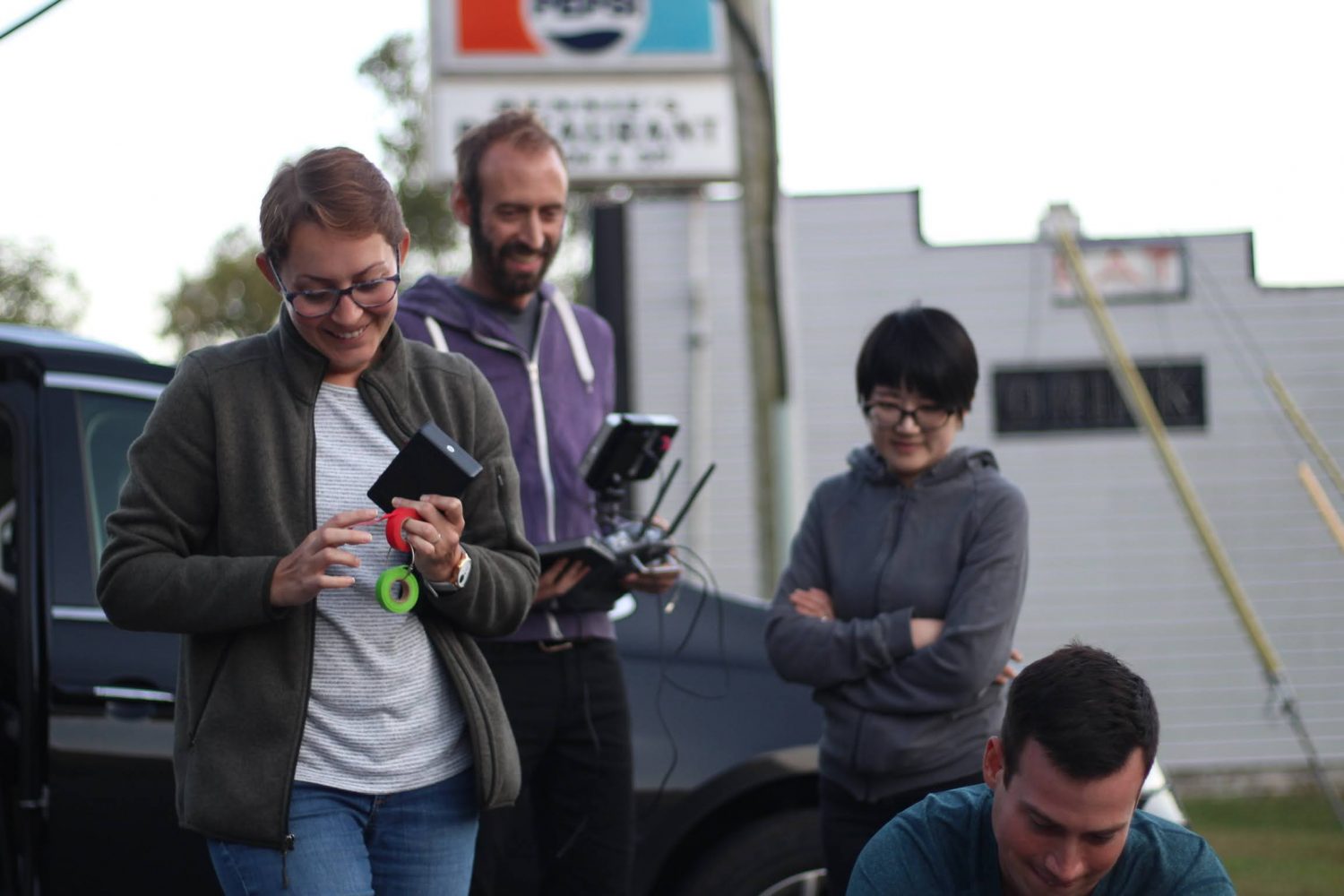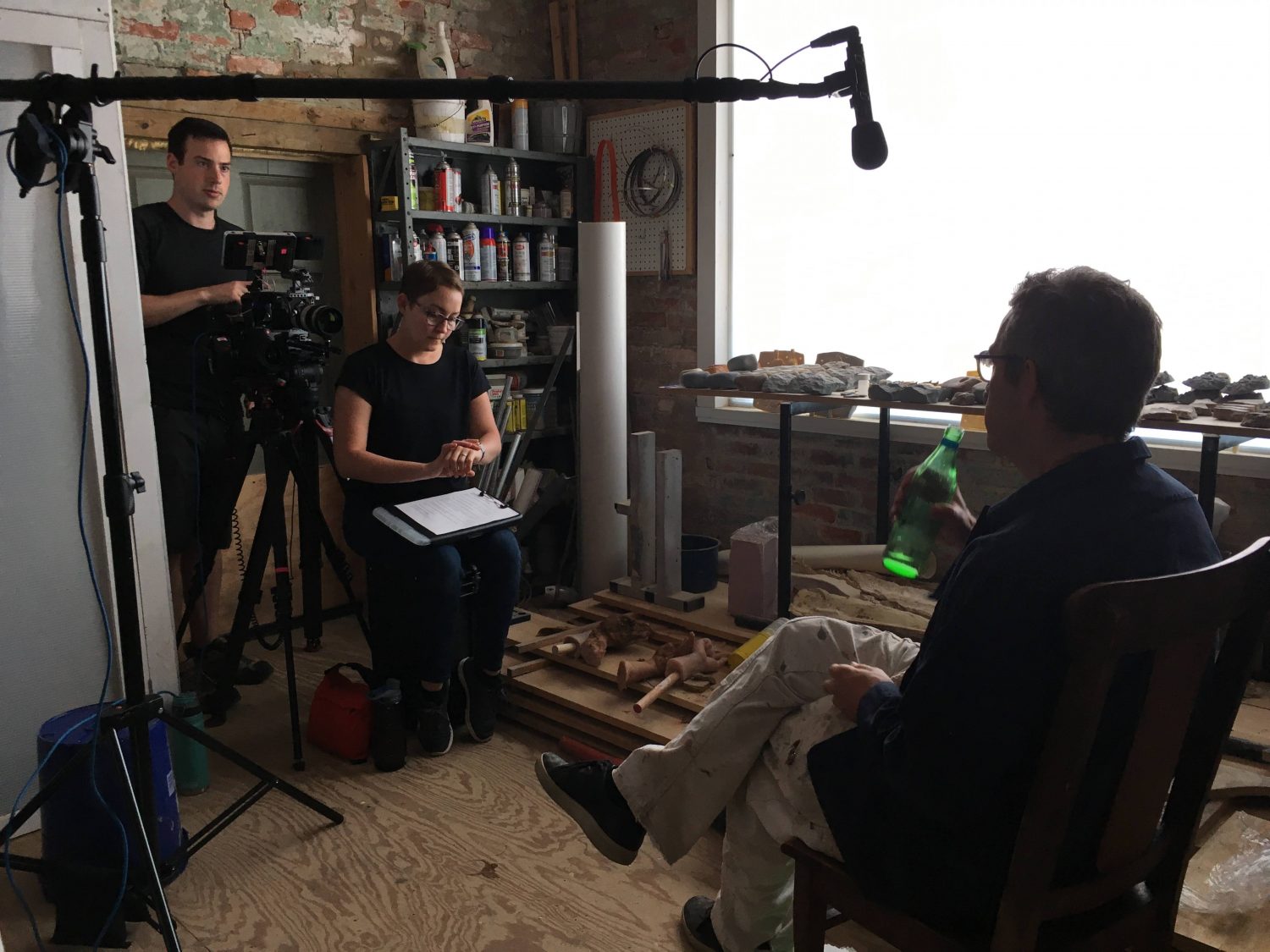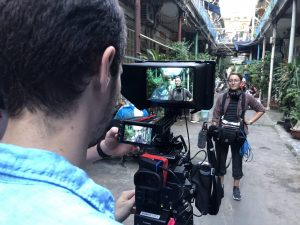
Photography + Film BFA alumni Tyler Kirby and MFA alumni Janelle Proulx have undoubtedly established themselves as a collaborative dynamic duo after growing their relationship into a full-time creative endeavor. Now as life partners that started out here at VCUarts, Janelle and Tyler have taken some incredible steps in creating their own family in Departure Point Films, a creative film agency.
In this interview with current Photography + Film undergraduate student, Maddie Han, Kirby and Proulx provided insight into how they created their film and creative video agency in Richmond, Virginia.
How did you both meet and what was the conversation that started your creative collaborative journey?
Janelle Proulx: “Tyler and I met in the VCUarts Photography + Film department. I worked in the equipment checkout and he frequently came by to checkout gear so we got to know each other that way. Before we started dating, Tyler also helped me edit a green screen effect for a video I was making – I had a photography background so Tyler had a lot more video software expertise! He was known among his peers as the person to go to with any video editing questions. I guess you could say we’ve been collaborating since before we dated!”
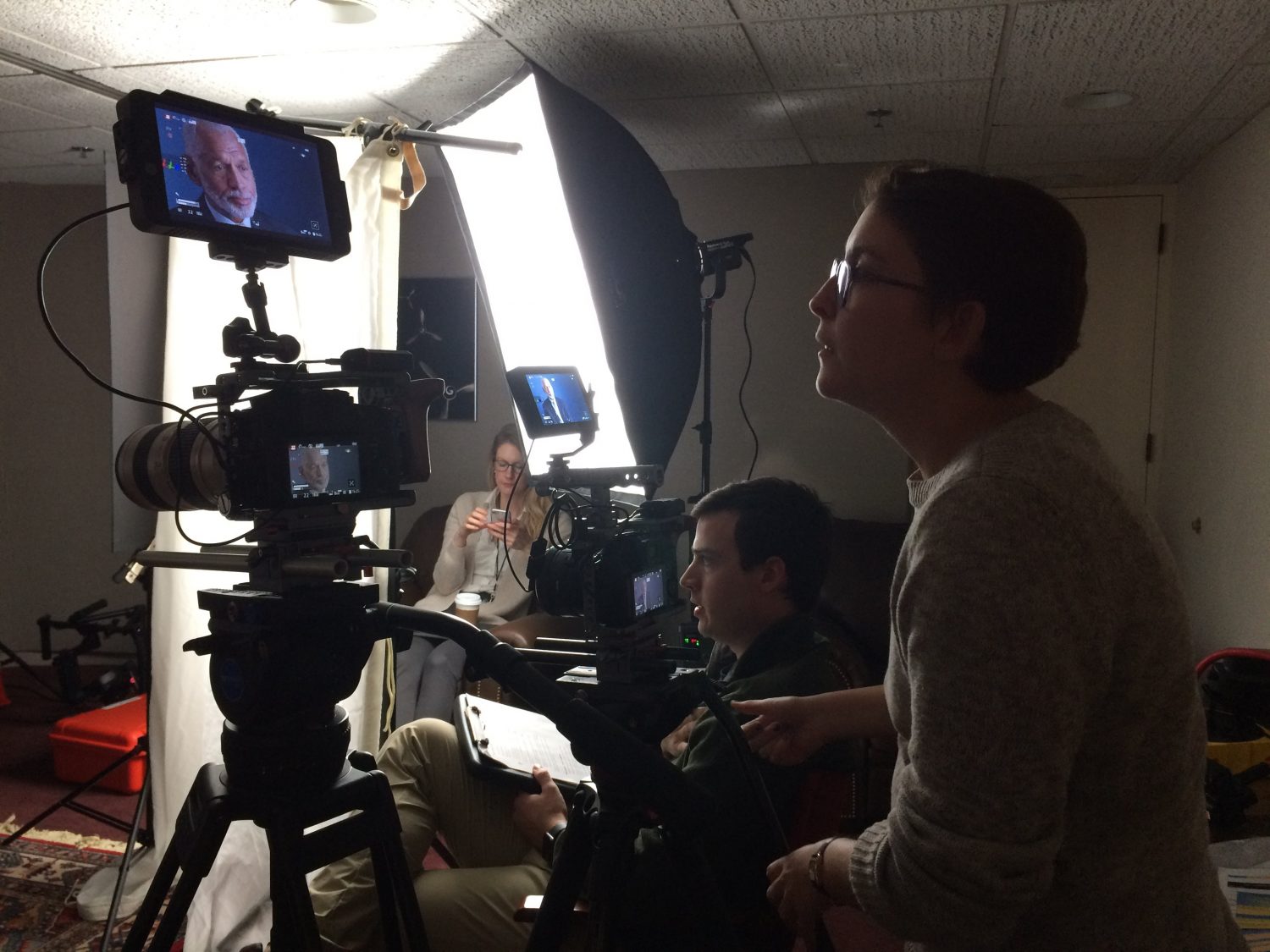
Could you describe your transition from art school to creating your own creative company? As artists, what is the experience of becoming entrepreneurs like and how do you balance the responsibility of being both professionally?
JP: It was a really gradual process of transitioning from other jobs we had into Departure Point. After working at other jobs for about a year and a half after graduating, we did Departure Point part-time for the first 6 months or so while we built up our portfolio. Then we launched our website with 5 videos that we had created and were able to transition to Departure Point full-time. I will say doing it early enough in our careers while we still had roommates was probably a huge help!
Tyler Kirby: While our art background is immeasurably useful in our line of work, we do think of ourselves as professionals first. That said, we find a lot of creative fulfillment in the work we do because we’re always problem solving for our clients and finding new ways to translate their message into video. Also, different projects and different clients means we’re learning something new every day: a job (or an entire industry) we knew nothing about, a part of the world we’ve never been to, or a new piece of gear that helps us get the job done more efficiently. To always feel like you are growing and enriching yourself while making films you’re proud of can be very rewarding.
As alumni from the Photography + Film program (BFA and MFA), how are you able to utilize the skills you’ve learned in your careers now? What essential pieces of information have you both learned from your respective degree programs?
JP: Learning how to self-critique and receive feedback was a big part of both of our programs which has definitely been a helpful skill set in our careers. Understanding the balance of trying to refine something as much as possible before you show it to anyone else, but also knowing that there’s going to need to be changes and not to be too defensive about it is a really foundational skill that art school provides.
TK: I’ll add that being able to make a deadline, and manage your time to do so dependably, is what makes or breaks a professional’s reputation (at least in the media delivery world). Word spreads fast, especially in a smaller city like Richmond, so if you are the young filmmaker or filmmaking company that often delivers cuts late I don’t think you’ll last long. Those time management skills were always emphasized in the BFA program, and I think those years are the best time to discover flaws in your own personal time management and fix them before entering the professional world.
How do you find a balance when working on personal and client films in tandem? Are there any specific tools or strategies that you use to stay on schedule and organized? How do you manage your time doing both, and especially when projects overlap?
JP: We only work on commissioned films, but we’ve been really fortunate to connect with clients who have projects that we align with personally.
Honestly, if making a personal film is your dream… I wouldn’t recommend starting your own business with the hopes of making that project on the side. Running a business is more than a 9-5 commitment that requires so much of your time and effort, especially in its nascent stage, so working for someone else or having a job that has a great paid time off benefit might be a better fit that would give you a dependable schedule to start your own project.
TK: In terms of tools and strategies to stay scheduled and organized… there are many! So many. I’ve spent years honing our project management workflow. We keep a really detailed calendar at all times and we use Airtable as a database to track all our projects from start to finish. While we don’t have personal projects that overlap, we do have several client projects going on at any given time, each in a separate stage ranging from just proposal and contract development to putting the final touches of color and sound. We have to track everything diligently and plot out our time weeks in advance so we can set realistic goals.
What do you look for when recruiting freelance crew members to work on projects? Is there any one specific thing that stands out to you when recruiting people more than anything else?
JP: For someone who is in a PA or swing position I’d say an eagerness to learn and improve upon systems is highly valuable. Someone who shows up to set clearly having retained something we showed them on the last job usually gets multiple call backs. Crew members on our sets often have to wear multiple hats because we keep a small crew size so everyone we work with has to be good at multiple things and have a can-do attitude.
TK: I mentioned in an earlier answer how hitting a deadline can make or break a reputation – the same is certainly true when crewing. A crew member that shows up late (for non-emergency reasons of course) to a shoot rarely gets a call back as it can cause a cascade of scheduling issues on a fast-paced day and can be embarrassing if the client is on set. As is said, “80% of success is showing up”.
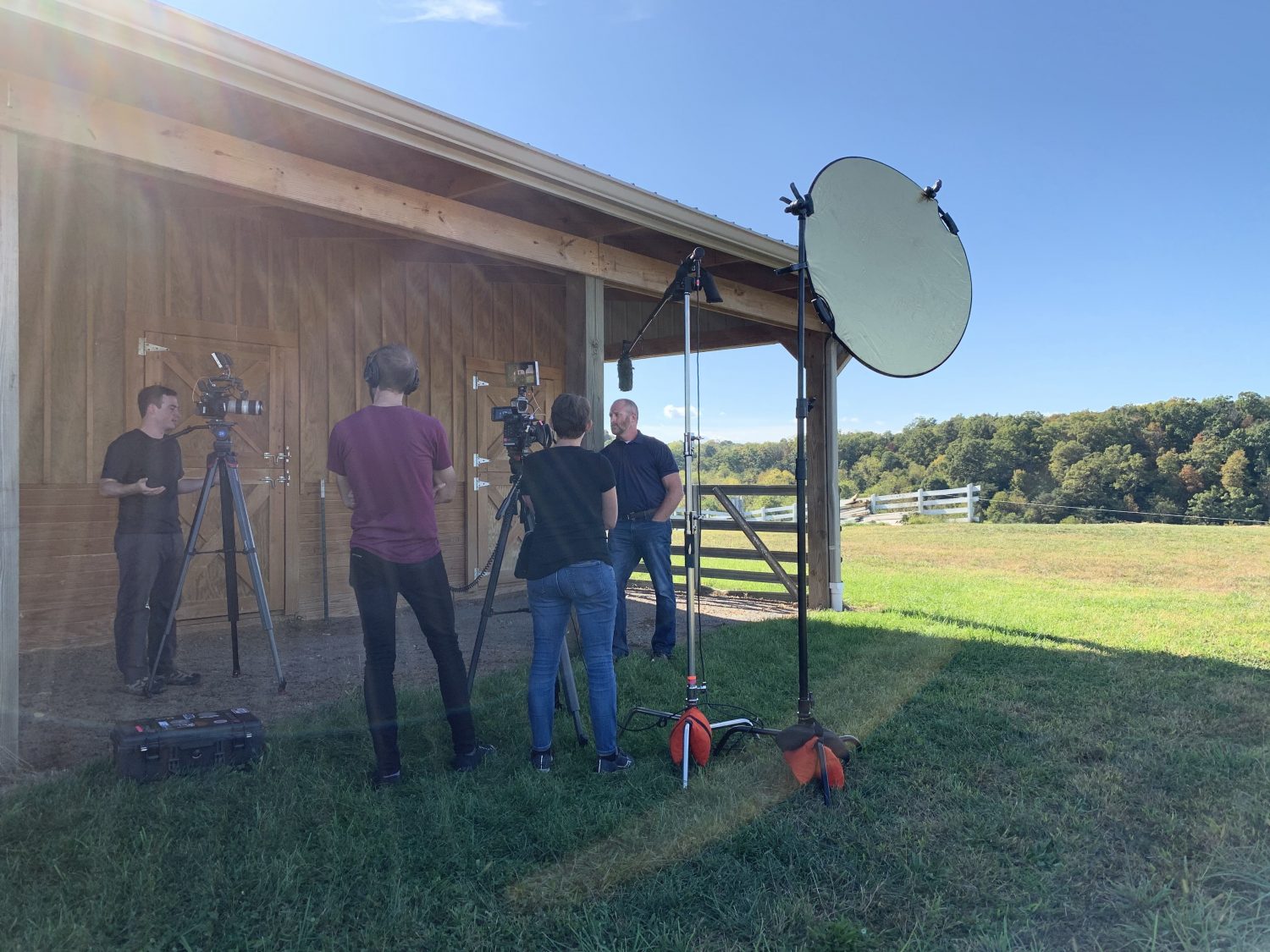
What is the most important thing you learned from the VCUarts Photography + Film department that helped you in starting your own company? If you could explore another aspect of the Photography + Film department that you didn’t before, what would it be?
JP: Hmmm that is a tricky one! I don’t know that anything translates that 1-to-1 for starting a business… but maybe it’s to always leave a good impression? Many of our clients are connected to VCU and some of our earliest work was for VCUarts which we’re incredibly grateful for.
TK: I think just taking the time to connect with faculty in the department and collaborating with peers. One of the best parts of VCUarts is being in that creative community. Everyone has a lot of unique knowledge and perspectives to offer beyond just their reactions to what you’re making. I sometimes wish I had gotten out of my own world/ideas a little more.
Why the name Departure Point Films? In what ways do you think that Departure Point Films brings something unique to the table?
JP: Since we’re not in branding, naming the company was a challenge! Ultimately we landed on Departure Point because we saw early on that our strength was in filming out on location.
I’d say what makes us unique is our agility both in terms of our crew size – we’re hardly ever more than 4 people – and our responsiveness to our clients’ ideas, schedules, etc. Since we’re small we can make fast decisions but we also achieve a production value that feels like that of a larger video agency. I think because Tyler and I engage on projects from start to finish there’s a certain amount of intuitiveness we can have too about how something is coming together or if it needs to pivot to put our best foot forward.
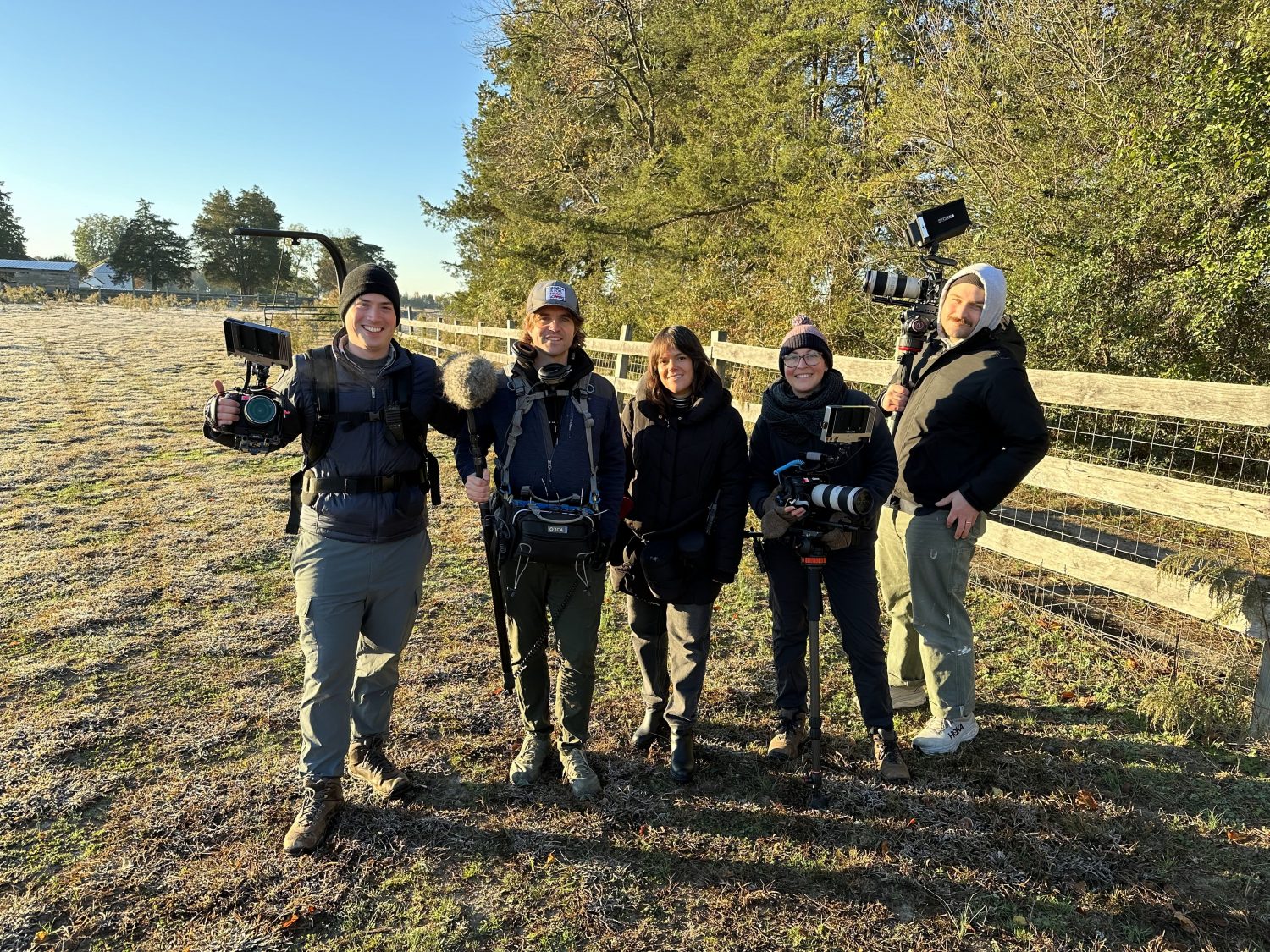
(Photo credit: Departure Point Films)
